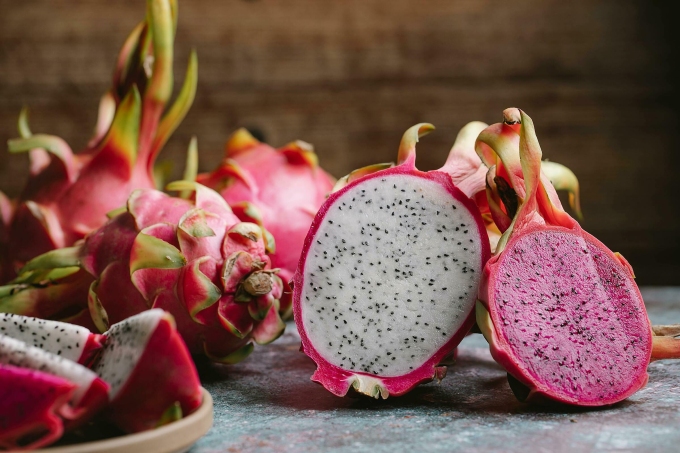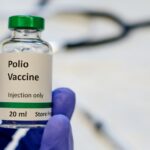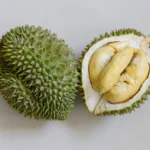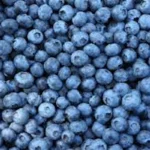The liver, the largest internal organ in the human body, performs an astounding array of vital functions. It acts as the body’s primary detoxification center, tirelessly filtering toxins, drugs, and waste products from the bloodstream.
Beyond detoxification, the liver is essential for metabolizing nutrients from food, converting them into forms the body can use, and playing a critical role in regulating energy levels. Given its immense workload and importance, maintaining liver health is paramount for overall well-being. Consuming the right foods, particularly certain fruits, can significantly support optimal liver function, help to reduce inflammation, and potentially aid in the prevention of various liver diseases such as fatty liver disease, hepatitis, cirrhosis, and even liver cancer.
According to Dr. Nguyen Thi Phuong, a distinguished nutritionist at Tam Anh General Hospital in Hanoi, fruits that are abundantly rich in essential vitamins and minerals are indispensable for maintaining liver health. These nutrient-dense fruits not only contribute to the liver’s daily functions but also play a proactive role in disease prevention. By incorporating these beneficial fruits into a balanced daily diet, individuals can actively support one of their body’s most hardworking organs.
1. Citrus Fruits: Potent Detoxifiers and Immune Boosters
Citrus fruits are celebrated for their vibrant flavors and their impressive nutritional profiles, making them powerhouse allies for liver health.
Rich in Essential Compounds
Fruits such as oranges, tangerines, lemons, and grapefruits are nutritional marvels. They are exceptionally rich in Vitamin C, a powerful antioxidant known for its immune-boosting properties. Beyond Vitamin C, these fruits contain bioflavonoids, which work synergistically with Vitamin C to enhance its effects, and citric acid, which aids in various metabolic processes.
The presence of potassium further contributes to their health benefits, supporting fluid balance and nerve function. These combined compounds are highly effective in promoting metabolism, which is crucial for efficient liver function.
Liver Repair and Disease Prevention
The unique composition of citrus fruits actively supports the liver’s detoxification pathways. They help to detoxify the liver, assisting it in processing and eliminating harmful substances. Furthermore, their potent antioxidant content plays a vital role in repairing damaged liver cells, mitigating the effects of oxidative stress. The significant boost to the immune system provided by citrus fruits also indirectly supports liver health by helping the body fight off infections that could otherwise strain the liver.
Beyond direct liver support, citrus fruits offer broader health benefits. They contain soluble fiber, which contributes to digestive health, along with being low in calories and carbohydrates. This profile helps to stabilize blood sugar levels, a crucial factor in preventing and managing conditions like fatty liver disease.
Soluble fiber also aids in preventing constipation, promoting regular bowel movements and reducing the burden of toxins on the liver. Eating citrus fruits before meals can also help reduce appetite, potentially assisting in preventing obesity, a major risk factor for fatty liver disease.
2. Dragon Fruit: Antioxidant Powerhouse for Fatty Liver
Dragon fruit, with its striking appearance, offers significant benefits, particularly for those managing fatty liver conditions.
Managing Blood Sugar and Liver Health
Dragon fruit is not just visually appealing; it’s a nutritional gem. It is generously packed with a diverse array of antioxidants, including Vitamin C, Vitamin E, betacyanins, and polyphenols. These powerful compounds actively combat oxidative stress, which is a key contributor to liver damage and the progression of fatty liver disease.
For individuals who are at risk of or are currently suffering from fatty liver, dragon fruit is an excellent dietary inclusion. It has a moderate glycemic index and an impressively high fiber content. This combination is beneficial because it helps to effectively manage blood sugar levels, preventing sharp spikes and crashes that can negatively impact liver metabolism. Stable blood sugar is a cornerstone of good liver health, making dragon fruit a smart choice for supporting overall hepatic function and potentially mitigating the severity of fatty liver.
3. Bananas: Digestive Support and Detoxification
Often hailed as a convenient and versatile fruit, bananas offer specific advantages for liver and digestive health.
Potassium and Fiber for Optimal Function
Bananas are well-known for being an excellent source of potassium and fiber. Potassium is an electrolyte that plays a vital role in maintaining fluid balance within the body and supporting proper nerve function, both of which are indirectly beneficial for overall organ health, including the liver. The high fiber content in bananas is particularly beneficial for detoxification processes.
Fiber aids in regular bowel movements, helping the body eliminate waste products more efficiently and thereby reducing the load on the liver. It directly supports the digestive system, ensuring a smoother and more effective metabolic process. Bananas are incredibly versatile and can be easily incorporated into a daily diet, whether enjoyed raw as a quick snack, blended into nutritious smoothies, or used in various baked goods. Their accessibility and beneficial nutrient profile make them a simple yet effective tool for promoting a healthy liver.
4. Apples: Fiber for Digestion and Systemic Health
The common apple is far more than just a crisp snack; it’s a valuable source of dietary fiber with broad health implications, especially for the liver.
Preventing Constipation and Toxin Buildup
Apples are notably high in fiber, a crucial nutrient for digestive regularity. This high fiber content is particularly beneficial for preventing constipation, a common and concerning issue in patients with advanced liver conditions like cirrhosis. In individuals with cirrhosis, constipation can lead to a buildup of toxins in the body, potentially resulting in hepatic encephalopathy, a severe brain dysfunction caused by the liver’s inability to adequately remove toxins.
Consuming just one medium-sized apple can provide approximately 20% of the daily recommended fiber requirement, making it an effective way to support healthy bowel function.
Beyond Digestion: Cardiovascular and Metabolic Benefits
Beyond its direct impact on digestion, the fiber in apples also contributes to broader systemic health improvements. It helps to reduce blood pressure and lower blood fat levels, both of which are critical factors in mitigating the risk of cardiovascular diseases and diabetes. These conditions can indirectly strain the liver, so by addressing them, apples contribute to overall liver protection.
Furthermore, the fiber in apples supports gut health by promoting a healthy microbiome, which is increasingly recognized as being interconnected with liver function. This contributes to better nutrient absorption and reduced systemic inflammation. Lastly, apples aid in weight management due to their filling nature and relatively low-calorie count, which is important for preventing fatty liver disease.
5. Avocados: Healthy Fats and Antioxidant Power
Avocados are renowned for their creamy texture and healthy fat content, offering a wealth of benefits for both cardiovascular and liver health.
Lowering Bad Cholesterol and Fighting Free Radicals
Avocados are an exceptional source of monounsaturated fats, which are considered healthy fats. These fats play a crucial role in cardiovascular health by helping to lower harmful LDL (low-density lipoprotein) cholesterol while simultaneously increasing beneficial HDL (high-density lipoprotein) cholesterol. This improvement in cholesterol profiles promotes better blood flow and contributes to healthier arterial function, indirectly supporting the liver by reducing systemic stress.
In addition to their beneficial fats, avocados are incredibly nutrient-dense, packed with over 20 different vitamins and minerals. These include essential nutrients like folate, Vitamin E, Vitamin C, and Vitamin K. Many of these vitamins, particularly E and C, are powerful antioxidants that play a critical role in neutralizing harmful free radicals in the body.
Free radicals are unstable molecules that can cause oxidative stress and cellular damage, contributing to inflammation and various chronic diseases, including liver damage. By actively combating these free radicals, avocados help to reduce inflammation throughout the body, providing direct and indirect protective benefits for the liver. Their comprehensive nutritional profile makes them an invaluable addition to a liver-healthy diet.
6. Tomatoes: Lycopene for Liver Protection
Tomatoes, a versatile and widely consumed fruit (often used as a vegetable in culinary contexts), are a rich source of a particularly potent antioxidant.
Combating Inflammation and Preventing Liver Damage
Tomatoes are an excellent dietary source of lycopene, a powerful carotenoid antioxidant responsible for their red color. Lycopene is highly effective at fighting inflammation throughout the body, including within the liver. By reducing inflammatory processes, lycopene helps to prevent liver damage that can arise from chronic inflammation.
This protective action is particularly beneficial in reducing the risk of fatty liver disease, a common condition, as well as guarding against infections and potentially lowering the risk of liver cancer. Lycopene’s anti-inflammatory and antioxidant properties make it a key compound for maintaining hepatic health. It is also found in other red and pink foods such as guava, watermelon, grapefruit, papaya, and sweet red peppers, offering diverse dietary sources for this beneficial compound.
Beyond lycopene, tomatoes also contain a spectrum of other beneficial nutrients, including Vitamin E, Vitamin C, folate, phenolic compounds, and dietary fiber. This comprehensive nutrient profile further enhances their health benefits, supporting overall bodily functions and contributing to a balanced diet.
Tomatoes are incredibly versatile in the kitchen, easily incorporated into various dishes. They can be enjoyed raw in fresh salads, cooked down into flavorful sauces, blended into refreshing juices, or included in a wide array of cooked meals, making it easy to harness their liver-protective properties daily.
7. Grapes: Resveratrol and Flavonoids for Anti-Inflammation
Grapes, particularly their skins and seeds, are celebrated for their concentration of powerful antioxidants beneficial for systemic health and liver protection.
Antioxidants for Liver Defense
Grapes are renowned for their rich content of resveratrol and flavonoids, both of which are potent antioxidants. Resveratrol, famously found in grape skins, has been extensively studied for its anti-inflammatory and anti-aging properties. Flavonoids are a diverse group of plant pigments with strong antioxidant capabilities. Together, these compounds work synergistically to effectively reduce inflammation throughout the body. Chronic inflammation is a significant driver of liver damage and disease progression.
By mitigating this inflammatory response, grapes help to protect the liver from oxidative stress and cellular injury. While fresh grapes are always the best choice for maximizing nutrient intake, other grape-derived products can also offer liver benefits. These include grape juice, grape seed oil, and grape jam, although fresh, whole fruit generally provides more fiber and a higher concentration of beneficial compounds. Incorporating grapes into your diet, whether as a snack or part of a meal, can be a delicious way to support your liver’s health.
8. Pineapple: Bromelain for Digestive and Liver Support
Pineapple, a tropical fruit with a distinct flavor, offers a unique enzymatic benefit that aids digestion and supports liver function.
Bromelain’s Anti-Inflammatory Action
Pineapple is particularly beneficial for the liver due to its remarkably high content of bromelain. Bromelain is not just a single enzyme; it’s a complex mixture of protein-digesting enzymes (proteases). This natural digestive enzyme plays a crucial role in breaking down proteins, which aids in digestion and can reduce the burden on the liver.
Beyond its digestive aid, bromelain is widely recognized for its potent anti-inflammatory properties. By helping to reduce inflammation throughout the body, bromelain indirectly supports liver function, as inflammation is a common factor in many liver conditions. Regular consumption of pineapple can be particularly helpful for individuals managing fatty liver disease, cirrhosis, or hepatitis.
Its anti-inflammatory effects can help to alleviate symptoms and potentially slow the progression of these conditions by reducing hepatic inflammation. Enjoying fresh pineapple as part of a balanced diet provides a delicious and beneficial way to support your liver’s health.
Important Considerations for Fruit Consumption and Liver Health
While fruits are largely beneficial, certain guidelines ensure maximum benefits and avoid potential pitfalls.
Prioritizing Fresh Over Processed Forms
Dr. Phuong strongly advises that fresh fruit provides significantly more nutrients compared to juices or highly processed fruit products. The act of juicing often removes beneficial fiber, concentrating natural sugars and potentially leading to blood sugar spikes. Processed forms, such as jams or canned fruits, often contain added sugars and artificial ingredients that can negate the health benefits and even place an additional burden on the liver. Therefore, prioritizing whole, fresh fruits is always the superior choice for liver health.
Sugar Content and Specific Liver Conditions
It is also crucial for individuals with specific health conditions to be mindful of fruit consumption. People diagnosed with fatty liver disease or diabetes should limit their intake of overly sweet fruits and fruit juices. While natural sugars in fruits are generally healthier than refined sugars, excessive consumption can still lead to elevated blood sugar levels, which can exacerbate these conditions. Portion control and choosing fruits with a lower glycemic index are important considerations.
The Holistic Approach: Balanced Diet and Medical Guidance
Ultimately, maintaining and improving liver health requires a balanced diet that extends beyond just fruits. It is essential to include a variety of foods, such as lean meats, fish (especially fatty fish rich in omega-3s), a wide array of vegetables, and diverse grains. This comprehensive approach ensures the body receives all the necessary macronutrients and micronutrients for optimal liver function and overall health improvement.
For individuals currently undergoing treatment for liver disease, regular medical check-ups are absolutely essential. Doctors can monitor progress, adjust treatment plans, and provide specific dietary recommendations tailored to the individual’s condition and needs. This personalized medical guidance, combined with a healthy diet rich in beneficial fruits, offers the best pathway to supporting liver health and managing liver diseases effectively.








